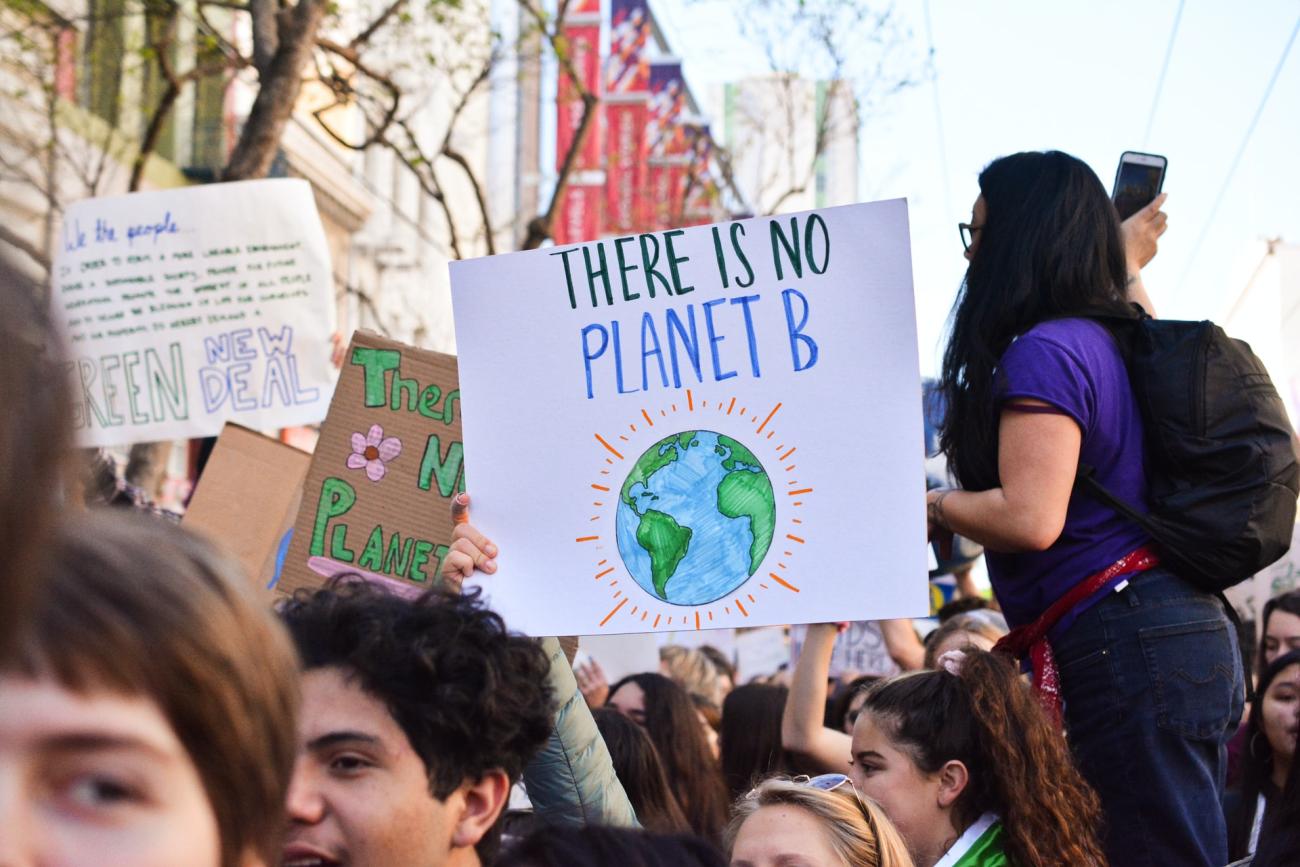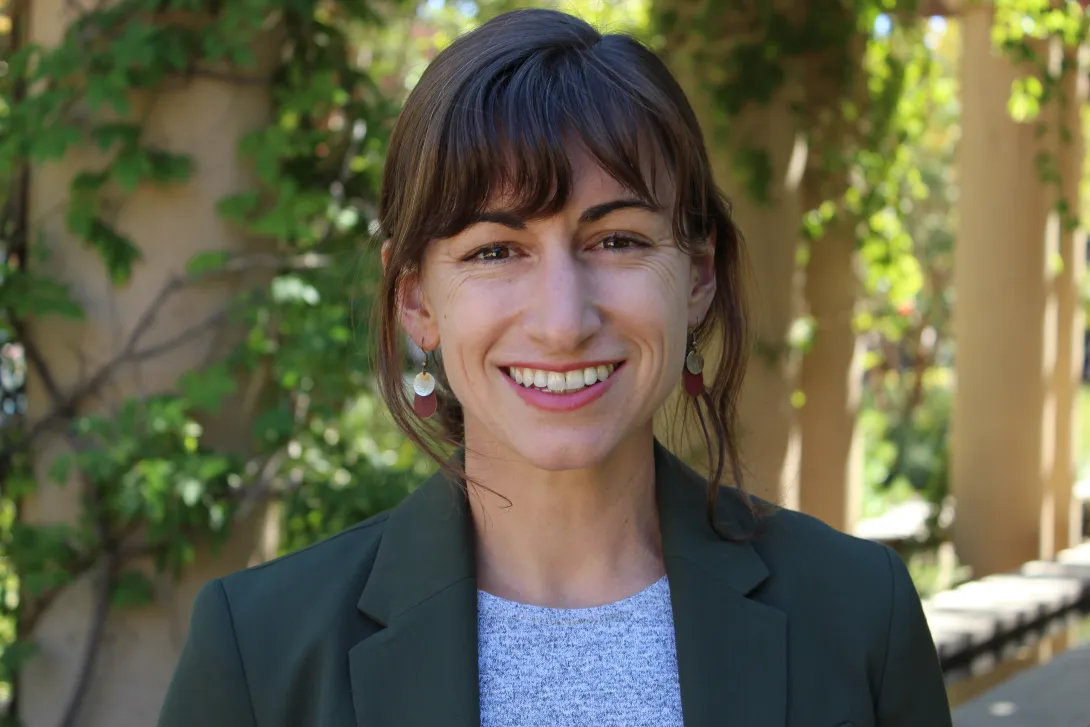
Stanford education scholar explores how political views influence teens’ understanding of climate change
Before enrolling as a doctoral student at Stanford Graduate School of Education (GSE), Lynne Zummo, PhD ’20, worked as a high school teacher – and before that, as a scientist conducting geology research on climate change. She was astonished by the disconnect between scientists and many Americans in their understanding of climate change, a divide that persists even with the growing scientific consensus that humans are driving this global phenomenon.
“People’s opinions about climate change are often very political, which is a major problem for science educators,” said Zummo. “How are we supposed to navigate politicized views of science when our job is to help young people make sense of the world?”
Zummo’s doctoral research, advised by GSE associate professors Nicole Ardoin and Bryan A. Brown, focuses on how teenagers’ political beliefs influence their scientific reasoning. For the 50th anniversary of Earth Day, when human impact on the atmosphere is a central environmental issue, Zummo talks about how young people are affected by the politicization of climate change and what science teachers can do to help bridge the divide.
How much of a role do political beliefs play in young people’s understanding of climate change?
It’s fairly well established that for adults in the United States, their world view influences how they perceive climate change – not only what they think should be done about it but, perhaps more importantly, how accepting or skeptical they are of the science behind it. There have only been a few studies into whether this is also true for teenagers, and the findings have been mixed: Some have shown that young people are less influenced by political views than adults are, while others have shown they can be quite influenced. I’m working to help clarify that with my research.
But politics do matter for young people, and that’s something we usually gloss over. We rarely talk about the political identities of young people in our schools, but we need to.
Why is it important for science teachers to take students’ political beliefs into account?

Lynne Zummo, PhD '20
My research suggests that teenagers’ political views are part of their culture and their ideas about who they are in the world. For a long time, teachers have known that good teaching involves understanding your learners and attending to who they are and where they come from.
Even though most high school students can’t vote and may not have firm allegiances to any certain political party, they still have ideas about who they are politically. It’s important for teachers to consider how any aspect of a student’s culture might affect their learning.
"Teachers [often] try to isolate the science without discussing the politics, in an effort to avoid controversy. I’m not convinced that this is the best way to lessen the politicization of climate change."
Lynne Zummo, PhD '20
How can science teachers connect with students who have different political ideologies?
I think one of the most important things science teachers can do is ground any learning in events that are likely to be relevant to students’ lives. The phrase climate change itself can feel abstract and distant. But for coastal communities, for example, sea-level rise or recurrent flooding is a reality. Starting there, in experiences that students actually know and can connect to their lives, is important. This also means that high-quality climate change science education is likely to vary geographically, and this geographic variation could also follow political patterns.
Teenagers often come to science class knowing that climate change is contentious and political, but then what often happens is that teachers try to isolate the science without discussing the politics, in an effort to avoid controversy. I’m not convinced that this is the best way to lessen the politicization of climate change.
One idea I’m working on are lessons that integrate the scientific and political history of climate change in the United States. The aim is to develop teenagers’ scientific literacy and their understanding of scientific dimensions of climate change, while also helping them understand how certain skeptical ideas about climate change have become entrenched. I’ve done some early testing with in-service teachers as learners and plan to do more over the next year.
We hear about schools refusing to teach evolution for ideological reasons. Have you seen anything comparable to that around climate change? Are adults’ political views about climate change affecting what kids learn about it in school?
I have seen some instances of that, but it’s often part of a more complex picture. Evolution is a staple of biology, but climate change is interdisciplinary. Understanding its causes and consequences involves a combination of physics, chemistry, biology and Earth science, so many teachers feel as though it does not fit neatly into their subject. That said, I have talked to some teachers who said that they do not teach about climate change for fear of backlash from other adults in the community.
Climate change also seems different from a lot of subjects in science because of the strong emotions that people bring to it – including young people, as we’ve seen from recent climate strikes. What implications does that have for how teachers approach it in the classroom?
Even without considering politics, climate change involves strong emotions. It’s very easy to become overwhelmed with feelings of fear and helplessness, and even anger for some young people, as we’ve seen in the climate strikes. I think teachers need to be prepared to deal with a wide range of emotions and to help students navigate these emotions while not losing sight of the science. As if teaching weren’t hard enough, science teachers have so many other variables to consider when it comes to climate change.
Science should be a place of coming together – a common ground where people work together to generate knowledge. We’re at a critical point right now, both with climate change itself and with climate change education. If we do the education piece well, we can enhance students’ understanding, but if we do it poorly, we could deepen the divisions. We have a lot of work to do in the next few years.



